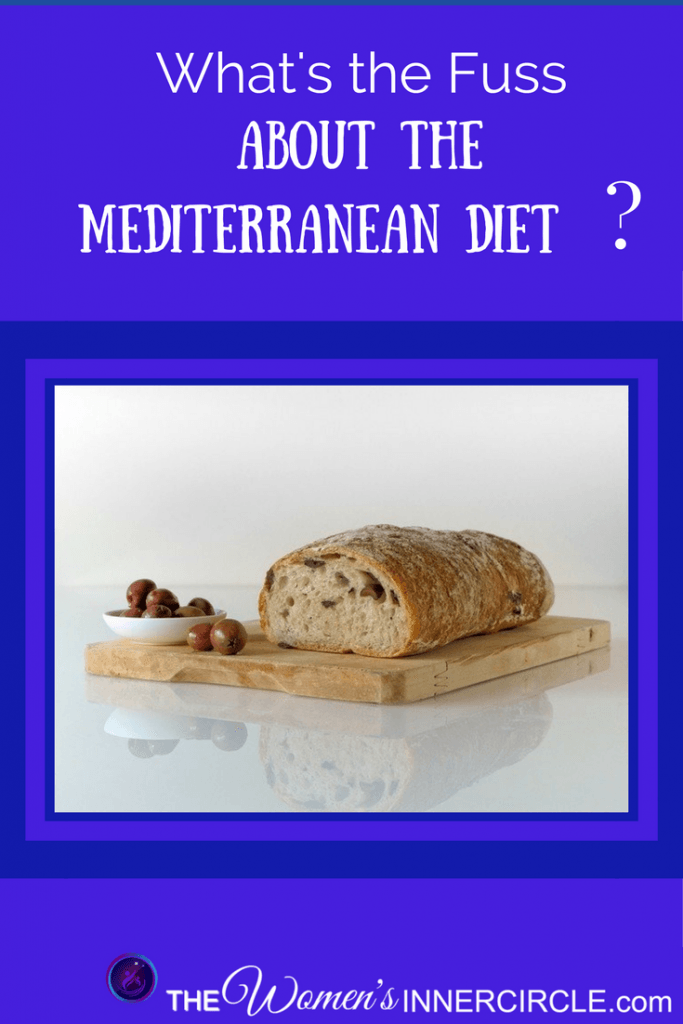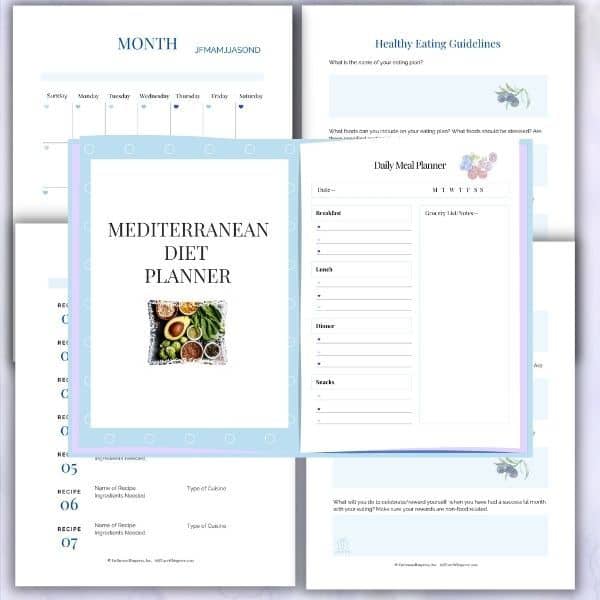There is a lot of talk about the Mediterranean diet today, as it touted by many health experts as the world’s healthiest diet. We totally agree with this fact!
Research suggests that a traditional Mediterranean diet consisting of large quantities of fresh fruits and vegetables, nuts, fish and olive oil significantly reduces the risk of heart disease, certain cancers, diabetes, Parkinson’s and Alzheimer’s diseases.
The Basic Elements of the Mediterranean Diet
As stated, the Mediterranean diet emphasizes: Eating primarily plant-based foods, such as fruits and vegetables, whole grains, legumes and nuts; also replacing butter with healthy fats, such as olive oil; and using herbs and spices instead of salt to flavor foods. Recommendations are to choose more fish and limiting red meat to no more than a few times a month.
To review, The Mediterranean Diet is abundant in fruits, vegetables, whole grains, legumes and olive oil. It features fish and poultry—lean sources of protein—over red meat, which contains more saturated fat.
This illustrates the kind of food you should eat when following the Mediterranean Diet:
|
How often |
Food to eat |
|
As often as you like |
Vegetables, fruits, nuts, seeds, legumes, potatoes, whole grains, whole grain breads, fish, seafood, olive oil |
|
In moderation |
Lean Poultry, eggs, lowfat cheese, lowfat yogurt |
|
Only rarely |
Red meat |
|
Never |
Sugar-sweetened beverages, refined grains, processed food |
Grab Your Mediterranean Diet Planner here
Use Coupon Code happy30 at checkout for a 30% Discount
The Health Benefits of a Mediterranean Diet
The consumption of a traditional Mediterranean Diet offers a number of health benefits, including:
- Protection against Type 2 Diabetes
This is largely due to the fact that a Mediterranean Diet is rich in fiber and is healthier for your digestive track. The Mediterranean way of eating helps keep your blood sugar more stable.
- Prevention against heart disease and stroke
Because the emphasis of the Mediterranean diet is on fruits and vegetables, it allows you to cut out the ‘bad’ sugar and ‘bad’ fats found in refined breads and processed food. These foods have been linked to heart disease and stroke.
- Keeping you agile
The many nutrients you will get from a Mediterranean diet will help prevent muscular problems and weaknesses.
- Reducing risk of Alzheimer’s
The Mediterranean diet can significantly improve cholesterol and blood sugar levels—all factors that may reduce the risk of Alzheimer’s disease or dementia.
- Increased longevity
When people follow a Mediterranean diet, there is a big reduction in their likelihood of developing heart disease or cancer. This can translate over to longevity.
How to Switch to a Mediterranean Diet
If you’re ready to make the transition to a Mediterranean diet, here are some easy tips to get you started:
- Increase your vegetable intake
A lot of people think vegetables are bland, but you can always enhance their flavor by adding herbs and spices, olive oil and/or some low fat dairy. You can also add some nuts and seeds to your salads, as well as some herbs to your soups to make them taste richer and heartier.
- Eat more Fish
- Change the way you think about meat
If you are a meat eater, you don’t have to give it up completely. Just choose leaner cuts and eat smaller amounts of them. Put small strips of chicken on your salad, or add diced prosciutto to a whole-wheat pasta dish.
- Never skip breakfast
There’s a reason why breakfast is the most important meal of the day. Use this meal as a time to replenish your body. Make sure to load up on lean protein, fruits, whole grains and fiber-rich foods to keep you pleasantly full for hours.
- Use good fats
Your body needs fat, but choose the amount and type of fat wisely. Eating too much fat can promote your putting on extra pounds, and choosing the wrong type of fat can lead to cardiovascular disease. Extra virgin olive oil, sunflower seeds, olives and avocados are great sources of healthy fats for your meals.
- Choose healthy dairy options
You don’t have to forego dairy from your diet. Instead, opt for small amounts of cheese or eat Greek yogurt. Try to stick with low fat dairy products.
- Eat fresh fruit every day
If you have a sweet tooth, choose strawberries or applies instead of ice cream or cake. Fruit can satisfy your sweet craving without making you feel overly bloated.
Study some of the countries in the Mediterranean and look at how the people eat there. You will see more fish consumed, a glass of red wine with dinner, more vegetables … The people tend to be active as well. We can really take some lessons from our friends overseas!

The Mediterranean Diet Planner will make it easier for you to switch. Grab yours here
Use Coupon Code happy30 at checkout for a 30% Discount

